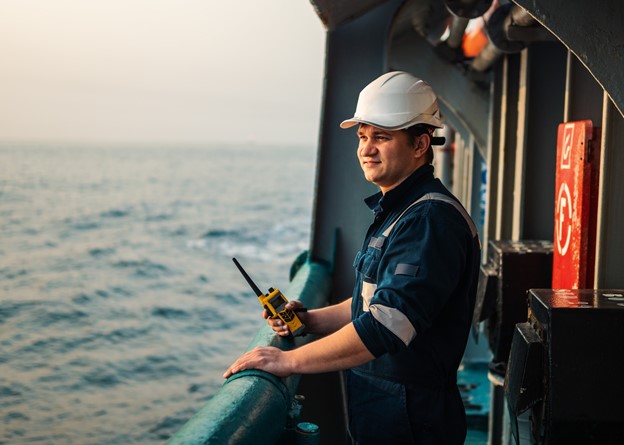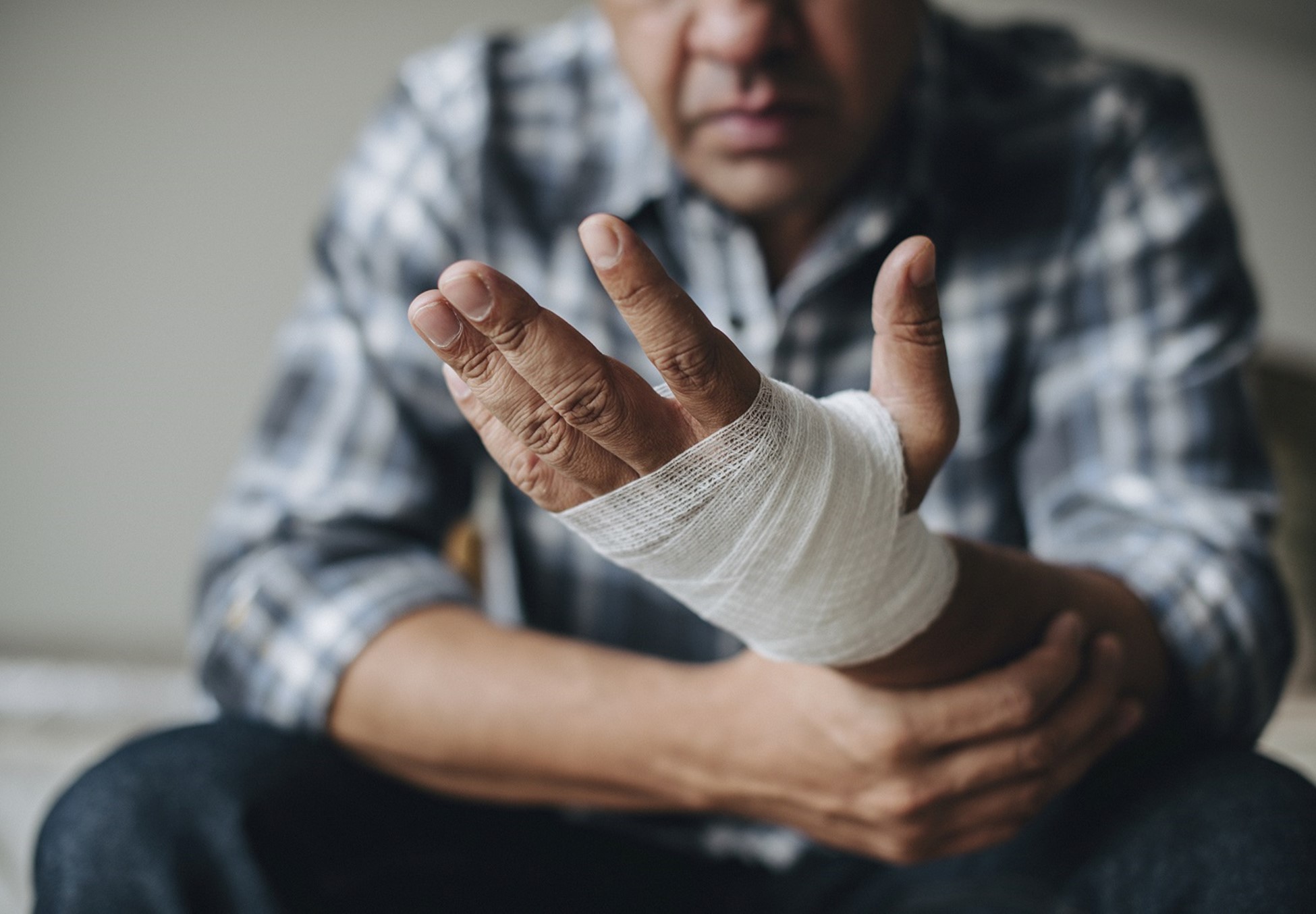
Blog
7 Common Injuries for Offshore Workers
Posted in General, Jones Act
Whether you are working on a ship, in a refinery, or on an offshore drilling rig, there are many dangers on the job in the maritime industry. Offshore injury attorneys note that companies often have daily safety briefings to inform workers of what dangers they will face and how to avoid these seven most common maritime injuries.
#1 Slip and Fall Injuries at Sea
One of the most common accidents and injuries that happens on a ship is caused by a slip and fall. Studies suggest that falls account for about 23% of maritime injuries, with slips causing 6-12% of reported injuries.1
Decks are made slippery by water and chemicals commonly used onboard. Sometimes falls are caused by missing or defective equipment. Injuries may include brain injuries, broken bones, or spinal cord trauma.
#2 Lifting Injuries on a Vessel

When lifting, remember to let your legs do the work and always stick to safety protocol. If you are asked to lift an object that is too much for you, inform a supervisor that you need assistance.
#3 Struck by an Object Onboard
Commercial vessels and oil platforms have heavy equipment and swinging lines. Many maritime workers have been injured when struck by a winch, boom, or falling object, and “struck by” injuries account for as many as 37% of reported accidents.1 These types of injuries often damage the back, neck, or head.
Wearing a hard hat is the easiest way to avoid injuries from equipment or falling objects. Under general maritime law, it is the ship owner’s responsibility to provide a safe work environment; this means making sure that equipment is kept in good condition, safety protocols are in place, and that work crews communicate with each other about the tasks being performed in a given area.
#4 Caught in Machinery or Equipment
Working on a fishing vessel or oil rig means working with heavy machinery, often in unstable conditions or in low visibility. At least 3-8% of maritime injuries studied involved catching hands, legs, or other body parts in machinery or equipment.1 These crushing or entanglement accidents can cause permanent injuries or even involve falling overboard.
#5 Burn Injuries at Sea

Chemical burns are also common due to daily contact with caustic or hot fluids. Electrical burns also occur more often in wet conditions. Many of these accidents can damage the eyes or skin, sometimes causing permanent blindness or requiring reconstructive surgery.
#6 Suffocation, Asphyxiation, or Chemical Inhalation
Working in enclosed spaces, especially below deck, can expose maritime workers to toxic fumes or a lack of oxygen. This type of personal injury accounts for less than 2% of accidents on a vessel,1 but it can have long-term debilitating effects.
#7 Repetitive Motion Injuries
Repetitive use injuries can happen in any industry, but also affect maritime workers. Performing the same motions over and over increases the risk of repetitive motion disorder or RMD.2 This long-term cumulative injury can affect the arms, hands, back, neck, hips, legs, ankles, or feet. Because these injuries can take a long time to develop, they often go unreported.
Have You Experienced One of These Injuries?
Have you or a loved one experienced one of these common maritime injuries? The offshore injury lawyers at Maintenance and Cure understand your rights. We will evaluate your case and help you navigate your legal options under the Jones Act or other maritime laws that protect injured workers. Contact us today for a free consultation with an experienced maritime lawyer.
Sources:













